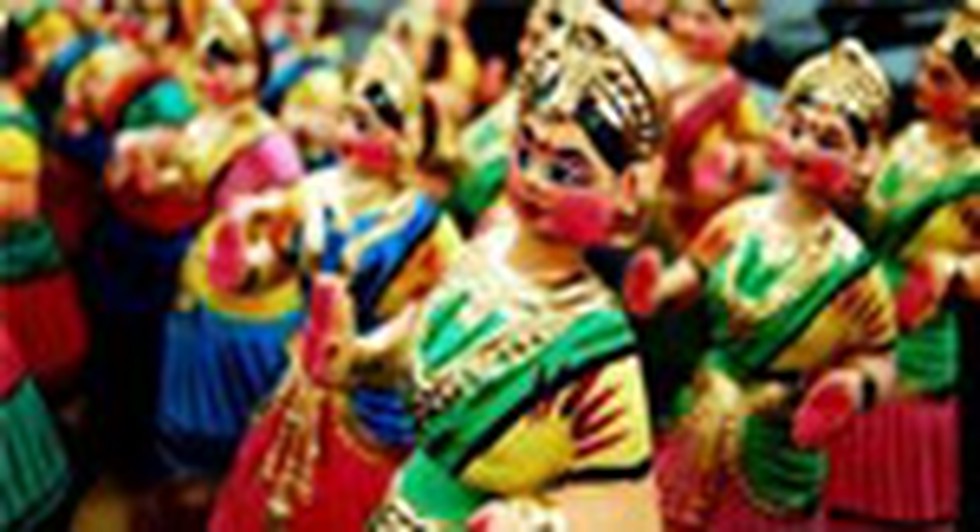About the Thanjavur doll:
- The craft was brought to Thanjavur by Maratha ruler Raja Serfoji in the early 19th Century.
- In Tamil language, it is called “Thanjavur thalayatti bommai”.
- Thanjavur dolls are primarily of two kinds, one is the bobble-head version, and the other is the tilting doll version.
- Material used:
- Doll-makers use papier-mâché, plaster of Paris and other materials for the body.
- A mixture of vandal mann (fine silt deposited by rushing streams of water), kali mann (clayey riverbed mud), and manal (loose aggregate) is required to make the dolls’ pedestals.
- Copper sulphate powder is added as a fungicide.
- Process:
- All the dolls have a lightweight body made of tapioca flour, papier-mache and plaster of Paris cooked and kneaded to the consistency of ‘roti’ dough.
- Each toy is made in halves, by pressing the rolled-out ‘doll dough’ into cement moulds, with liberal dusting of chalk powder.
- Dolls pass through at least seven stages from mould to assembly before they are packed for despatch, with each step, such as painting the facial features and costume embellishments, requiring a skilled artisan’s attention.
- The dancing doll has four sections (including the arms that are individually glued to the torso), each balancing on the other with the help of inner metal loop hooks that create the light bobbing movement.
- It earned the Geographical Indication tag in 2009.
